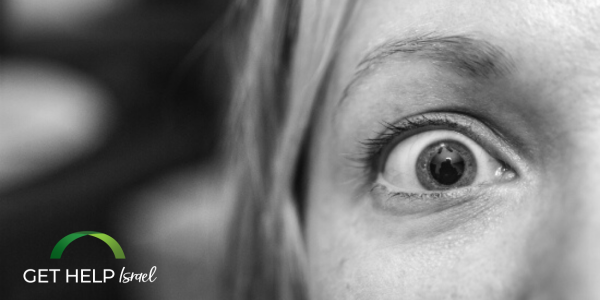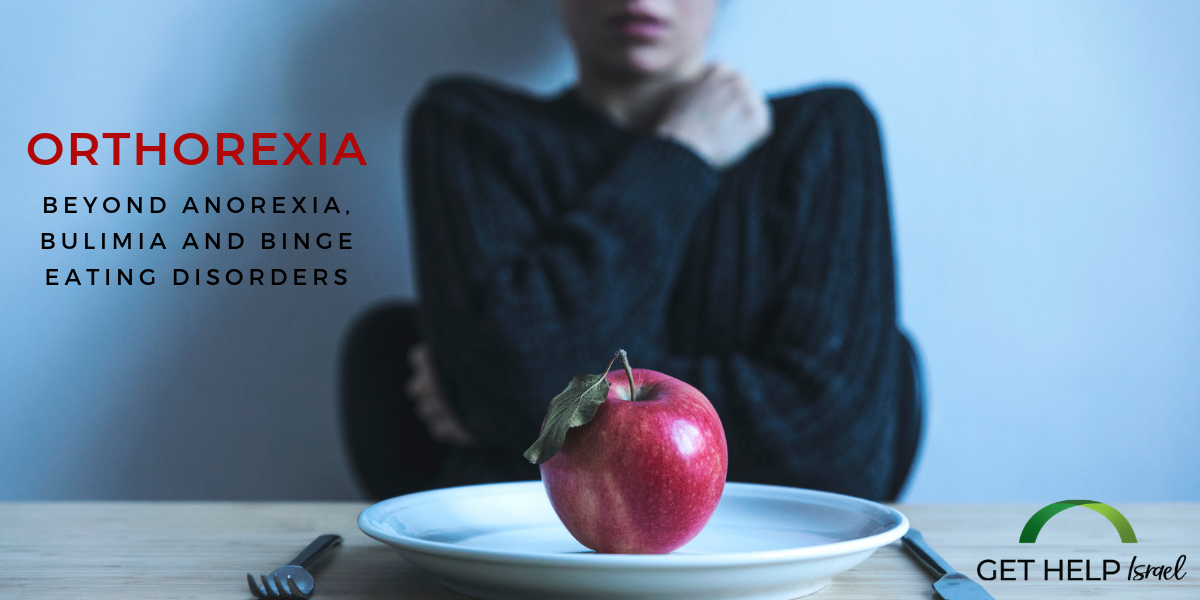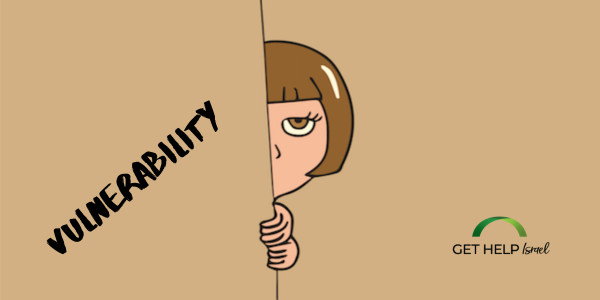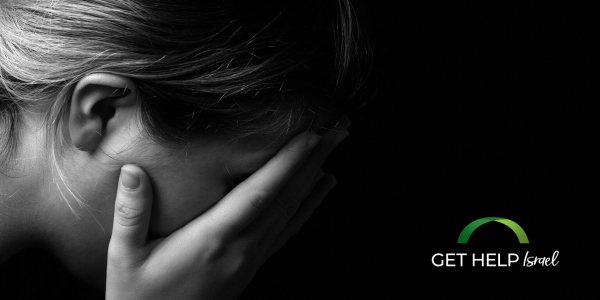The GHI Fund proudly support soldiers, lone soldiers, and active reservists in funding trauma therapy via private practice multilingual therapists to provide imminent specialized care. Soldiers can select their own therapist through our database of participating therapists.

Embracing Your Fear
By: Nancy SchwartzEight years ago when I was diagnosed with Lyme disease I had a deep-seated fear of never walking again; that I would never be able to take long aimless walks like the days before.
Read More
My Unorthodox life: Exploring Differences of Opinion in Couplehood
By: Micki Lavin-PellWhen I work with couples through dealing with differences, whether it be religious or any other practice or want, I help the couple explore their deeper feelings around their differences of opinion and differences of practice. Couples deal with all kinds of differences. Some examples are issues around health and fitness, what kinds of food enters the home, what kinds of media are allowed, how to use finances, what dress represents members of the home, places to hang out and where not to go, how much time to spend together, what to do with the time they spend together, where to go on vacation, to name but a few.
Read More.png)
Can Adolescents Act Abusively?
By: Aviva Zahavi-AsaParents are often reluctant to admit that their teenager is acting in ways which are abusive due to their own feelings of guilt, shame or a sense of failure. In some of these cases, the adolescent was exposed to domestic violence or experienced abuse within the family at an earlier age and then repeats familiar family patterns at a later stage. In other cases, however, no history of abuse exists within the family.
Read More
Fundamentals of Trauma Recovery, Part 6
By: Chava LedererIn building muscle, you will literally build your container to bear it all. When your container is fortified, recovery will be easier.
Read More.png)
My Journey Through Chronic Pain: A Personal and Professional Story of Healing
By: Tzipora HaitPhysical pain in the body that is produced by our brain is identical, whether there is an actual structural injury in the body or whether the brain mistakenly believes there is a structural injury in the body. To offer an analogy, a smoke alarm that sounds because it is broken makes the exact loud and very real noise as a smoke alarm that sounds because there is smoke from an actual fire.
Read More
Beyond Anorexia, Bulimia and Binge Eating Disorder: Understanding The Spectrum of Disordered Eating Behaviours
By: Hadassah (Johanna) Hazan
I feel frustrated when people dismiss lesser well-known disordered eating behaviours. My experience has led me to very confidently believe, that no one ends up in these sort of patterns, without there being something else going on, something that feels as if it requires some sort of distraction from, or total obliteration of. These things need healing. If they aren’t, they persist and the behaviours (coping mechanisms) developed to deal with them become harder to shift out of, thus limiting a person’s life ever more destructively.
Read More
.png)
How to Successfully Stop Eating Nosh
By: Sarah SacksWhen food comands you to eat and you feel compelled to obey, even against your own better judgement, know that there are powerful belief systems working within you. This inner compulsion is coming from your subconscious mind. The good news is, with subconscious reprogramming your conscious mind can become your decisive force.
Read More
Beginnings & Endings: Making Sense of Life Changes
By: Keren BurgmanThe holiday season has ended, the parties and festivities subsided, and we come back to…
Read More
Vulnerability Just Ahead
By: Nancy SchwartzIs feeling vulnerable a good thing? Many of us see it as a sign of weakness, as we’re not being good enough!! We’re afraid of not being seen by others as the “perfect” mother/father, spouse, child, worker, etc.
Read More.png)
On Today's Menu: Corona Sandwich
By: Jeanne LankinI am overwhelmed with guilt as I can’t be with my parents on a daily basis to help them navigate this challenging time in their lives. At the same time, I also feel guilty that I can’t help my kids while they struggle in raising their children and I can’t be there to help babysit or just spend time with them. I miss my grandchildren and virtual visits just aren’t doing it for me or them anymore.”
Read More
Fundamentals of Trauma Recovery, Part 2
By: Chava LedererYou can help your brain register that you survived — you are here — to find more stability and presence in your daily life.
Read More
Separation Anxiety
By: Jeni DantoWhen we hear the term “Separation Anxiety,” we often think of young children off to pre-school, crying because they don’t want their parents to leave. But Separation Anxiety can come any time your child leaves the nest — especially at college age. And it’s not just limited to the child — parents can also experience Separation Anxiety when their child leaves them.
Read More.png)
Seen, Heard, Felt: Why AI Falls Short in the Therapy Room
By: Yisroel PickerThinking of using an AI app for mental health? It might offer tips, but it can't replace a therapist. AI lacks intuition, can't read the room, and doesn't understand complex human nuance like a trained professional does. Learn why the human connection is still essential for navigating your mental well-being effectively.
Read More
The Wondrous “Black Sheep”: the Truth Teller of a Family
By: Keren BurgmanHow often have you heard someone describing their family and either talking about a sibling…
Read More
Fundamentals of Trauma Recovery, Part 5
By: Chava LedererIf you feel ashamed in relation to any part of your trauma, you deserve to connect with others and experience the relief that comes with dissipating shame.
Read More
Dying at a Distance: Grief During Covid
By: Jeanne LankinHumans are incredibly resilient. I am constantly in awe of the people that I speak to, in my role as a bereavement therapist, who are creating amended rituals to help them cope with their painful losses. There is no correct answer to our predicament. It feels unfair to be deprived of the comfort of our traditions that help guide and heal mourners. However, we can try to creatively engage in meaningful adaptations of our rituals during this crisis to help us process our grief.
Read More
Re-Frame Rejection so You Can Successfully Move Forward in Relationships
By: Micki Lavin-PellI have been rejected more times than I can count. By friends, boys, jobs, my kids, you name it… One of my most memorable rejections happened while in 6th grade. My English teacher encouraged us to write a journal, which I kept "hidden" in my desk. In it, I wrote all about a crush I had on a boy named Joey, a fellow classmate. I forgot that in the morning we sat at one desk and in the afternoon another. A fellow classmate found my journal and proceeded to read that very entry aloud to the entire class during recess.
Read More
40 Years of Research: Why Solving Your Marital Disputes is Not the Solution
By: Daniel FundMany couples think that they just need to be able to find an agreement, a compromise, a solution to their disagreements. And that couples' therapy is about solving their disagreements. In fact, for many years this is how couples' therapists approached therapy as well. Unfortunately, this approach failed and statistically, their success rates were very low. But the field of couples therapy research has changed dramatically. In the last 40 years, Dr. John Gottman, Dr. Leslie Greenberg, and Dr. Sue Johnson, to name a few major names have made real breakthroughs, having studied many thousands of couples, watching them closely in action, on live cameras, video, behind one-way glasses and otherwise. One of Gottman's findings is that about 70% of our disagreements as couples, never get solved! And this is true not only for failing couples but for the very successful couples as well! So, if solving problems is not what leads to success, what does? The answer is that as a therapist, I can help them reach such an emotional bond that makes the issue of solving problems redundant, a non-issue. Once they have this bond, they will not necessarily need me to solve their problems. Find out more inside.
Read More.png)
4 Ways NOT to Apologize to Your Spouse
By: Yonatan SchechterCouples occupy the same spaces, literally and figuratively, and it’s inevitable that they will clash or disappoint each other from time to time. When that happens, an apology is a major part of making amends. Here are some of the most common mistakes made when apologizing.
Read More
Earth, Water, Air, and Fire
By: Chava LedererThe four classical elements are channels through which we make contact with the present moment reality, and engage our uniquely human mind – a mind capable of creativity, of connecting to others, of faith and spirituality. I offer you these four elements as resources in moments of stress, panic, fear, or any other overwhelming experience.
Read More

